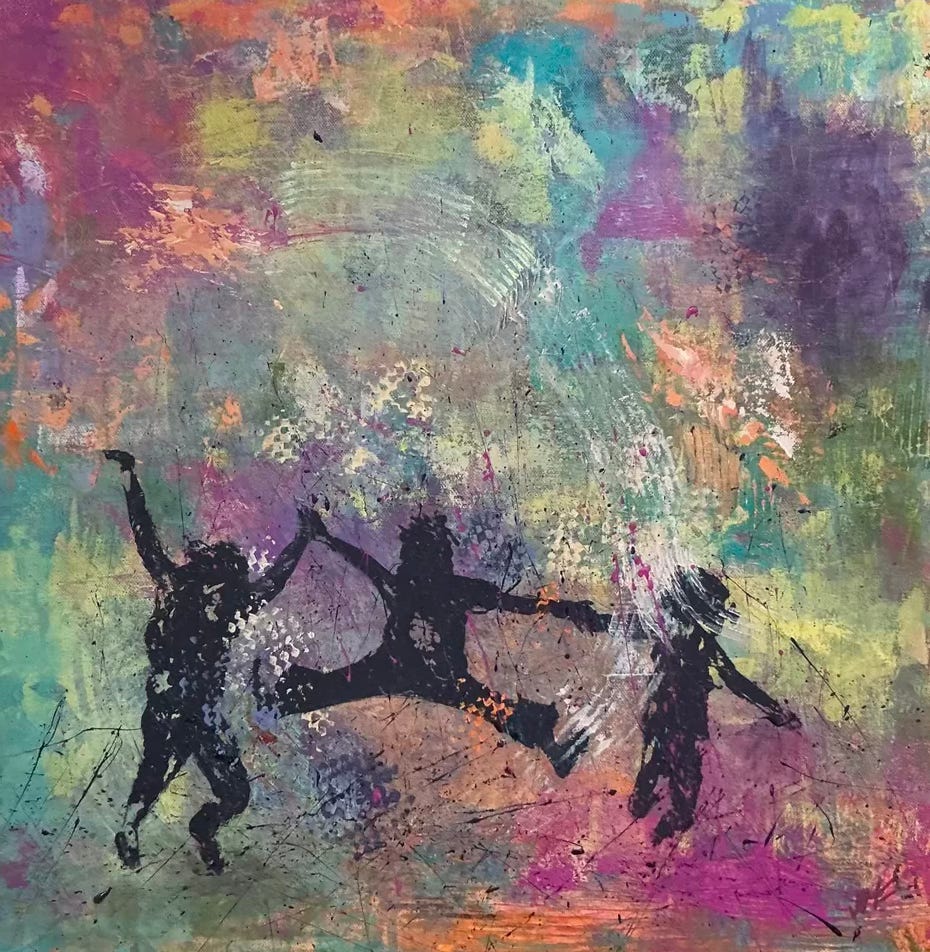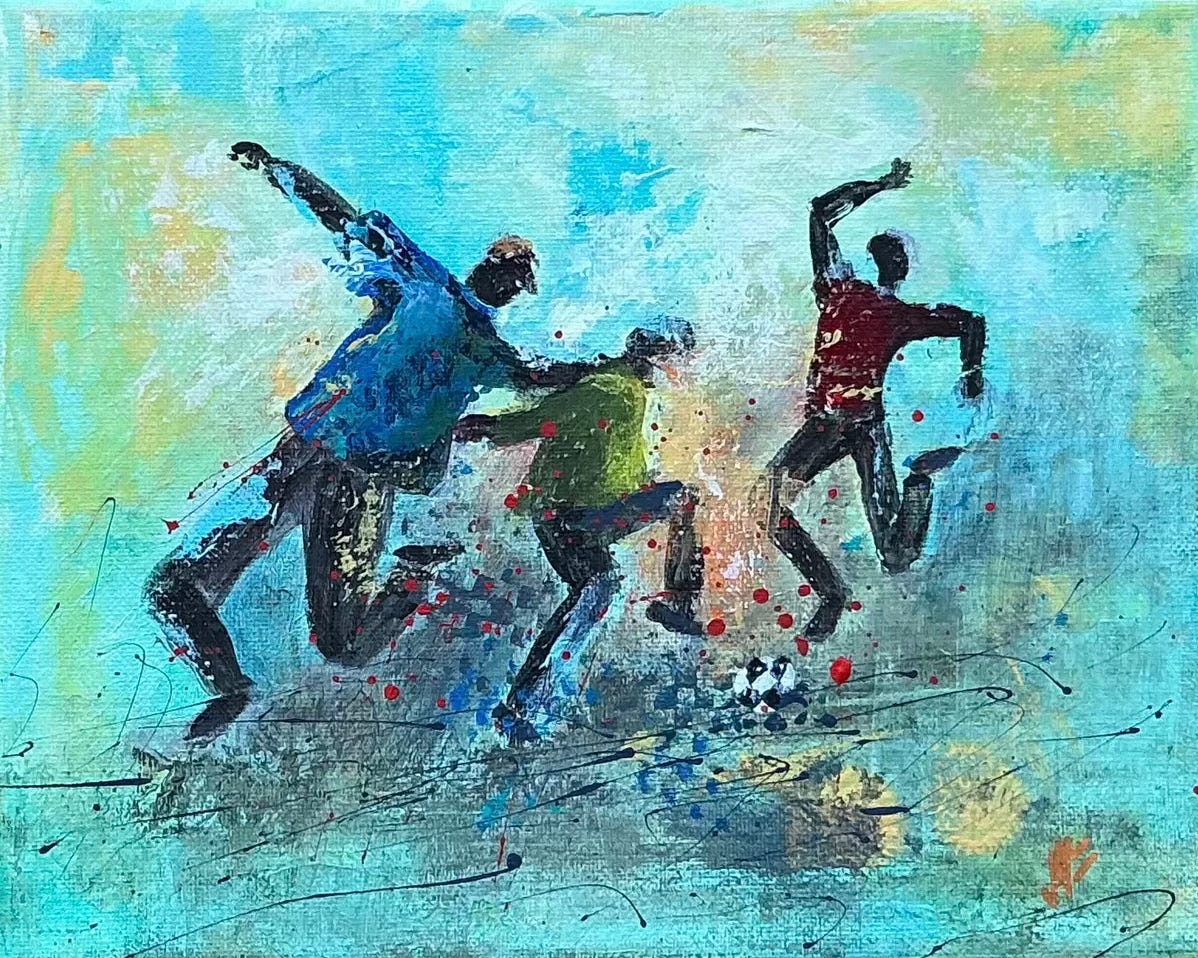Do All Roads Lead to Winnemucca?
Learning to Share the Lord's Mercy Joyfully
Early one summer morning more than twenty years ago, a group of twelve elders left Carson City, Nevada. We had a three-hour drive through the desert to our zone conference in Winnemucca, where we hoped to arrive with plenty of time to wash our dusty cars before inspection and then listen to our mission president’s farewell address.
Our zone leader was the only one who had been to Winnemucca before, so he led the caravan. I drove behind him with a MapQuest printout in case we got separated. When he blew past a sign for a left turn to Winnemucca, something didn’t feel right. I flashed my headlights and flipped on my turn signal. We all pulled over and I jogged ahead to his car.
“Weren’t we supposed to turn there?”
My zone leader shook his head confidently. “We’re going through Fallon,” he said. “That’s the way I know how to get there.”
Even though Fallon was the less convenient way to Winnemucca, I figured it would be best to take the route he already knew. But when we reached Fallon an hour later, yet again we drove past a sign pointing out a left turn to Winnemucca. My companion wondered aloud whether we should turn, but I followed. There must be another way to get to Winnemucca, I thought.
We sped past dirt, gravel, and sagebrush for more than an hour. Eventually, a nagging feeling crept over me. I knew Winnemucca is northeast of Fallon. Why were we driving due east toward the early morning sun?
Any minute now, I thought, the road must veer sharply north.
Any minute now.
When we passed a sign that said we were approaching the town of Austin, my zone leader pulled over to the side of the road, and I stopped behind him. He darted back to my car.
“Why are we going to Austin?” he blurted, confused. I wanted to ask him the same question. Why was he going to Austin?
Instead, I asked: “Does this mean we should have taken that left turn in Fallon?”
His eyes widened.
“We missed the turn?” he said, incredulous. “And you didn’t say anything?”
I protested. He had made it clear he knew the way. But he was adamant that I should have tried again. Because I hadn’t spoken up, we had driven more than an hour in the wrong direction. Yes, there was another way to Winnemucca, but we would arrive two hours late in dust-covered cars, having missed most of our president’s farewell address.
Why We Stay Silent
Ironically, my zone leader’s words echoed one of my favorite conference talks in those days. As a junior apostle, Elder Henry B. Eyring had expressed regret over having not shared the gospel with a former employer who had later died in a car accident. “In the world to come,” he said, “I suppose that I will meet him, that he will look into my eyes, and that I will see in them the question, ‘Hal, you knew. Why didn’t you tell me?’”
Eventually, I came to see his story as nearly identical to my drive to Winnemucca. In life we seek a heavenly destination where we hope to arrive clean to enjoy fellowship with people we love. Along the way, we look at the good people around us who do not follow the signs we see. We might think, “There must be another way to get there.” But as the Doctrine and Covenants teaches, “it becometh every man who hath been warned to warn his neighbor” (D&C 88:81).
“The Lord would not use the word ‘warn’ if there were no danger,” Elder Eyring said. “Yet not many people we know sense it. They have learned to ignore the increasing evidence that society is unraveling and that their lives and family lack the peace they once thought was possible. That willingness to ignore the signs of danger can make it easy for you to think, Why should I speak to anyone about the gospel who seems content? What danger is there to them or to me if I do or say nothing?”
It’s a legitimate question: What is the danger in saying nothing? The more I observe how my willingness to share the gospel has fluctuated over time, the more I think that we sometimes stay silent because we think the answer to that question is, “Not much.”
More Than One Way To Winnemucca?
When we think of obstacles to sharing the gospel, we normally come up with ideas like the fear of rejection, anxiety about giving offense, shyness, or weakness of personal testimony. But an often overlooked challenge is the tug-of-war between two key gospel teachings: exclusive and inclusive salvation.
On the exclusive side, our scriptures are clear: “There is none other name given under heaven save it be this Jesus Christ, . . . whereby man can be saved” (2 Ne. 25:20). This is “the only true and living church” (D&C 1:30) and only a narrow path flanked by an iron rod leads to the tree of life (1 Nephi 8, 14). The Book of Mormon warns against Nehor’s doctrine that no one should “fear nor tremble” because “in the end, all men should have eternal life” (Alma 1:4).
But pulling the opposite direction, the scriptures teach us that God speaks “the same words unto one nation like unto another,” giving each nation “all that he seeth fit that they should have” until “the testimony of two nations shall run together” (2 Ne. 29:8; Alma 29:8). Certainly God’s messages to other nations guide them toward salvation! As the Prophet Joseph learned when he saw a vision of his brother Alvin in the celestial kingdom, “All who have died without a knowledge of this gospel, who would have received it if they had been permitted to tarry, shall be heirs of the celestial kingdom of God” (D&C 137:7).
That same revelation taught the prophet that God “will judge all men according to their works, according to the desire of their hearts” (D&C 137:9). Years later, while teaching the novel practice of baptism for the dead, the prophet criticized religions that assume outsiders will descend to hell. “While one portion of the human race are judging and condemning the other without mercy, the great parent of the universe looks upon the whole of the human family with a fatherly care,” he wrote in Times and Seasons. In his view, God would judge us according to how we lived up to the truths available to us.
These beliefs can pull us in different directions, with fear on one side and silence on the other. The concept of exclusive salvation makes us “quake and tremble” at “the very thought that any soul should endure endless torment,” and want “salvation [to] be declared to every creature” (Mosiah 28:3). It’s the feeling that moved me as a teenager to ask an elderly neighbor to read The Book of Mormon. I remember freezing, except for my shaking hands and my mouth, as I repeated a scripted invitation. He turned me down but told me a bit about his faith. I tried to keep the conversation going, feeling the weight of his eternal life hanging on my ability to say the right words to touch his heart.
But often, the more universal teachings cause us to stay silent, like me shrugging as my zone leader passed another road to Winnemucca. “There’s another way to get there,” we tell ourselves. When teaching this principle to young people I’ve often drawn Pac-Man-style ghosts with missionary name tags to symbolize missionaries teaching the gospel in the Spirit World, subconsciously telling myself that someone can accept the gospel later. Not long ago, a stranger stopped to help me change a blown-out tire on the side of the road. As we made small talk and loosened lug nuts, he said he was about to read Jeremiah for his Bible study group. I easily could have asked him, “Would you like to know more about the premortal life hinted at in Jeremiah 1:5?” But I talked myself out of it, not wanting to impose my ideas on his faith, which obviously worked for him.
I don’t think either of these approaches is exactly what the Lord envisioned when he asked us to “testify and warn the people,” or when he gave us good news about mercy and salvation. The sons of Mosiah feared and trembled, but they also did not anxiously condemn the Lamanites they taught. Perhaps they understood what the prophet Joseph would later describe as “a voice of gladness for the living and the dead” that should make “the earth break forth into singing” with mountains, rivers, trees, and rocks bursting forth with joy and praise (D&C 128:19, 22).
Clearly, this good news should not inspire anxious preaching nor silent shrugging. The prophet went on: “Let all the sons of God shout for joy!” (128:23).
Why Speak Now
Shouting for joy is the mode of a true disciple and missionary. It outshines fear-driven gimmicks and laissez-faire silence. It also gives us new reasons for sharing the gospel now, rather than trusting the divine plan to make the gospel available to someone later. In fact, the very truths that we sometimes use to excuse our silence may be the best reasons for sharing the gospel now.
Consider the prophet’s teaching that God does not condemn someone simply because of their religious affiliation and that all will be judged according to the light and knowledge available to them. Rather than feel relief that this can serve as a “Get-Out-of-Missionary-Conversation-Free Card,” what if we offered this knowledge to the world? Many believers labor beneath the notion that God is more vengeful and judgmental than loving or merciful. Other people have discarded their belief in God because they could not accept such a cruel deity who saves so few. Why not shout for joy about our knowledge that God is both more real and more merciful than many others believe?
Then there is the joy we experience through temple work. I remember watching tears of happiness run down a friend’s face as he was sealed to his parents, with me acting as proxy for his father. The first time I discovered additional ancestors in newly indexed genealogy records, I felt a thrill, as though I were traveling back in time to bless past generations. Later, I took an ancestor’s name to the temple, having learned a small amount about heartaches he had experienced in his life, and I rejoiced in the hope that the Savior could heal his soul. The joy of these experiences is worth shouting from the rooftops.
Our faith that people can accept the gospel later provides another incentive to share the gospel with them now, for two reasons. First, knowing that they may someday look back and wish they had received the gospel during this life, we can try to honor that wish now. Second, knowing that in the Lord’s mercy their eternal salvation does not hang on our convincing presentation, we can share this knowledge with joy rather than fear of rejection.
Finally, we can be motivated by the joy of gathering Israel on both sides of the veil—not just on the other side. Regarding work for the dead, Joseph Smith proclaimed, “they without us cannot be made perfect—neither can we without our dead be made perfect” (D&C 128:15). In the same way, the blessings of sharing the gospel on this side of the veil flow to those who share as well as those who receive. We become more perfect, complete, and whole thanks to the spiritual gifts, knowledge, and perspective brought by converts who gather into the Church.
On my drive through the Nevada desert decades ago, I learned that there was more than one way to Winnemucca, but it required getting directions and finding our way to the correct interstate. Likewise, though the gospel teaches there is one way to eternal life, the restoration expands access to that way. Every other road can eventually intersect with the strait and narrow path that leads to life, giving every child of God the opportunity to reach salvation. This knowledge means we do not need to condemn others with our warning voice, but it also does not need to pacify us into silence. Instead, it can motivate us to shout for joy as we share this mercy with everyone.
Bryan Gentry writes nonfiction on topics including personal development, psychology, open-minded discourse, and faith, as well as fiction and poetry. A graduate of Southern Virginia University, he lives in Columbia, S.C., with his wife and children.
Art by Luz Frye.







